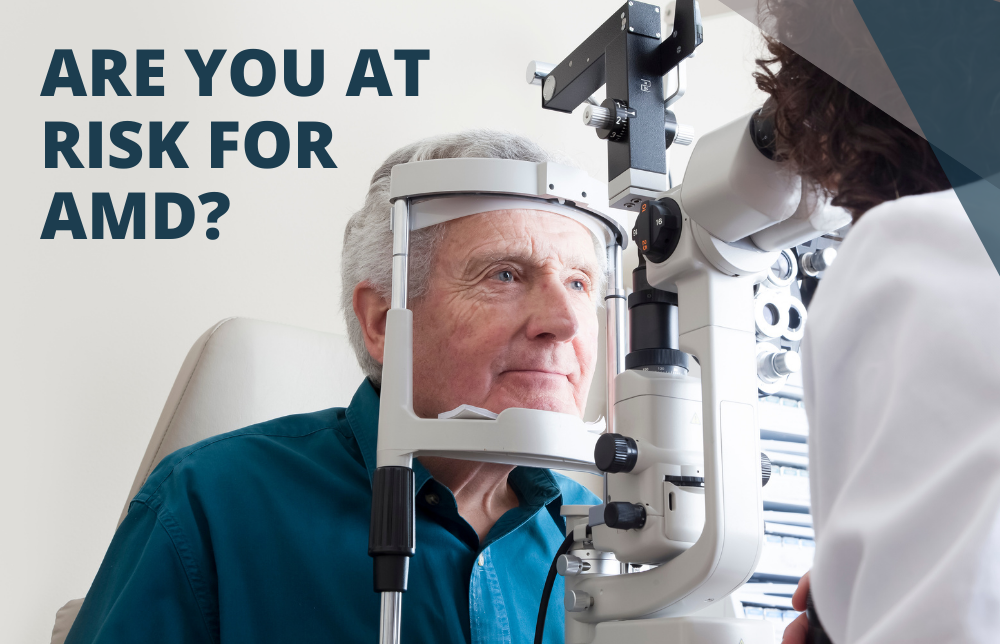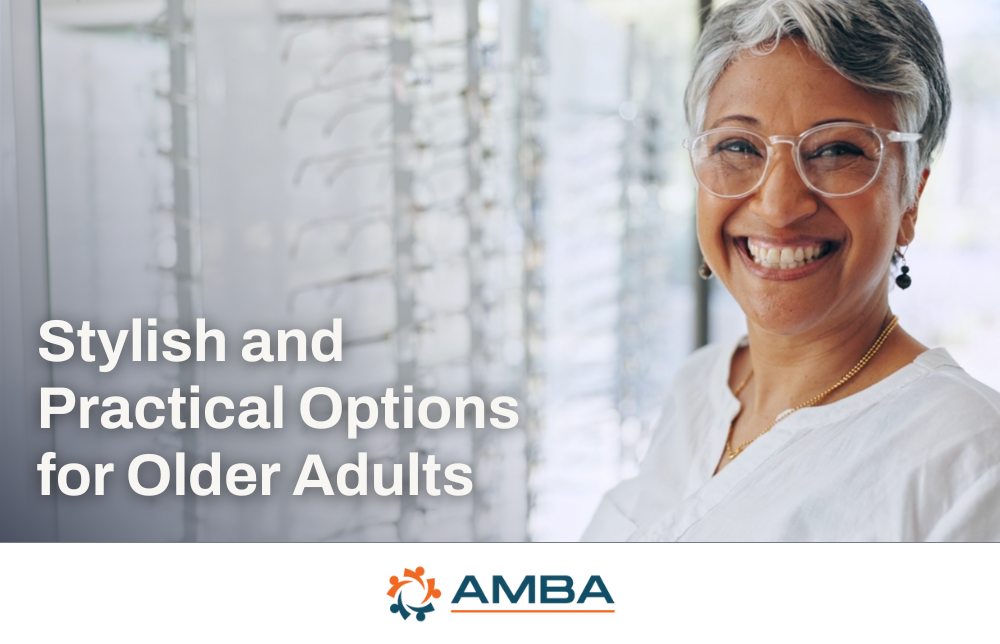
What You Need to Know About Age-Related Macular Degeneration
August 27, 2021
Age-related macular degeneration (AMD) is a condition that about 2,000,00 Americans aged 50 years and older are diagnosed with. It happens when aging causes damage to the macula, the part of the eye that controls sharp, straight-ahead vision.
Although AMD is a common condition, it can significantly affect the quality of life of people who have the condition. Although AMD doesn’t cause complete blindness, it can cause the loss of your central vision and can make it very difficult to see faces, read, drive, or do close-up work like reading, fixing things around the house, or cooking.
The Risk of AMD Increases as You Get Older
People age 55 and older are more likely to have AMD. The risk for AMD is also higher for Caucasians and females. Other factors that increase risk is if you are obese, have a family history of AMD, or smoke.
There are 2 types of AMD: atrophic AMD and advanced neovascular AMD. Most people have atrophic AMD (also called Dry AMD). This is when the macula gets thinner with age. It progresses in three stages: early, intermediate, and late.
- Early Dry AMD doesn’t cause any symptoms.
- While some people with intermediate Dry AMD still have no symptoms, others may notice mild blurriness in their central vision or trouble seeing in low lighting.
- Late AMD (wet or dry type) symptoms include straight lines starting to look wavy or crooked as well as a blurry area near the center of your vision. Over time, this blurry area that may get bigger. You may also see blank spots. Colors can also seem less bright than before, and you may have more trouble seeing in low lighting. There’s no treatment for late Dry AMD, but you can find ways to make the most of your remaining vision. And if you have late dry AMD in only one eye, you can take steps to protect your other eye.
Advanced Neovascular AMD (also called Wet AMD), is a less common type of late AMD. It usually causes faster vision loss. Any stage of Dry AMD can turn into Wet AMD, but Wet AMD is always late stage. It happens when abnormal blood vessels grow in the back of the eye and damage the macula. There are treatment options are available for Wet AMD.
Treating Macular Degeneration
Treatment with zinc and antioxidants has been shown to reduce the risk and progression to advanced AMD among people aged 50 years and older. You can also lower your risk by quitting smoking, maintaining healthy blood pressure and cholesterol levels, and eating healthy foods, including leafy green vegetables and fish. If your condition progresses to Wet AMD, your doctor can treat it with medicines called anti-VEGF drugs that are injected into your eye.
Eye doctors can check for AMD as part of a comprehensive eye exam. It’s yet one more reason why annual eye exams are so critical to maintaining your vision’s health as you get older. Your association and AMBA have a great Vision Plan that lets you get annual eye exams and amazing discounts on eyewear, frames, contact lenses, and more. Sign up now at www.AMBAdentalvision.com or call 866-979-0497.
RECENT POSTS
AMBA’s Essential Insights in Dental Health: Understanding Cavities
Have you ever experienced pain or noticed persistent sensitivity in your teeth? You might have a cavity. Cavities are common,
Read More
Keep “Looking” Your Best: The Unique Eye Health Challenges for Women Over 55
March is Women’s History Month, a time to celebrate women's contributions to American history and society. It’s
Read More

AMBA’s Eyewear Trends for 2025: Stylish and Practical Options for Older Adults
The days when eyeglasses were just a functional accessory to help improve vision are long gone. Today, eyeglasses are one of
Read More

Be Ready for Unexpected Expenses in Retirement. AMBA Has the Tips You Need.
Whether you’re already retired or it’s coming up on the horizon, planning your retirement is essential. Many people
Read More

